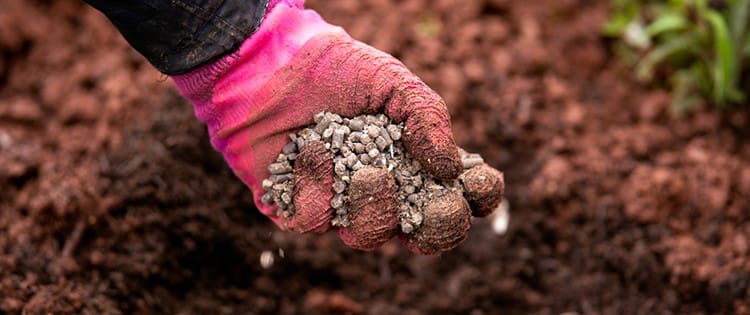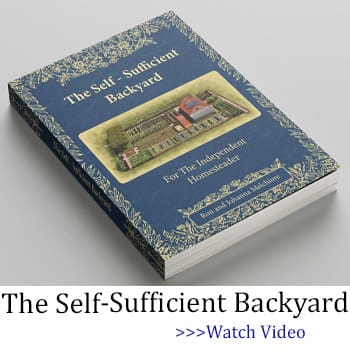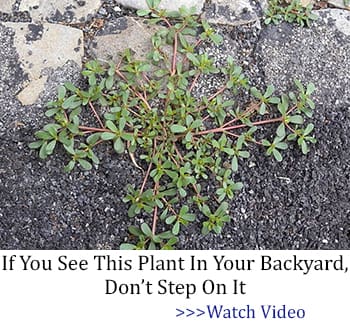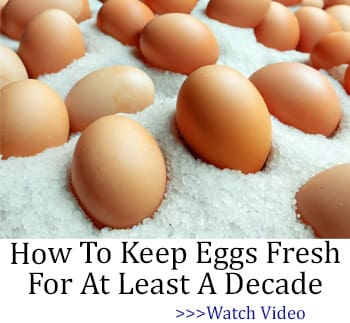Perhaps you have heard that burying things in your garden has benefits, but you might not know the extent of these benefits or, perhaps, even know how to start.
Let’s continue with the benefits.
Burying certain things will benefit the soil by making it richer and helping the crops be healthier and more plentiful. Other benefits include reducing waste and landfill, saving money on buying fertilizer, and reducing your carbon footprint by lowering methane emissions.
How to start? This article discusses 8 main things you can bury in the garden that have huge benefits. Hopefully, it will provide you with enough inspiration and direction to start.
Animal Carcasses
E.g., toads, fish heads, birds.
As the carcass decomposes, it turns into a rich fertilizer. Don’t worry about the plant roots. They will grow through the carcass and absorb the nutrients needed.
I routinely bury fish heads (from the fish my husband catches on our lake) a few inches under the plants and never tire of how healthy the plants grow!
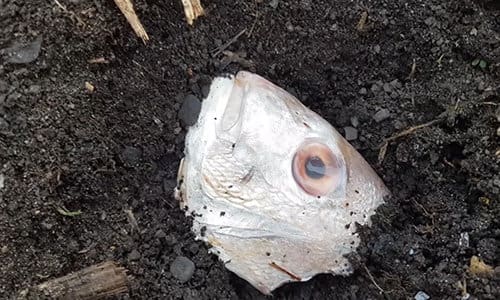
Animal Waste/Manure
Fresh manure (e.g., from cows, horses, sheep, goats, and rabbits) is best after it has been left covered in a cool shady spot for several weeks to break down. The fresh manure can be combined with and dug through the soil to evenly distribute the nutrients. Also, the fresh manure is less concentrated and won’t burn up the soil.
Remember that animals with a plant-based diet will produce manure that can be safely buried in a garden; don’t use dog or cat manure.
Since I also raise chickens, it is easy to collect the chicken manure daily and store it in our fruit cellar. After several weeks, I combine it with the soil.
Related: 7 Domestic Animals That Are Too Easy To Raise
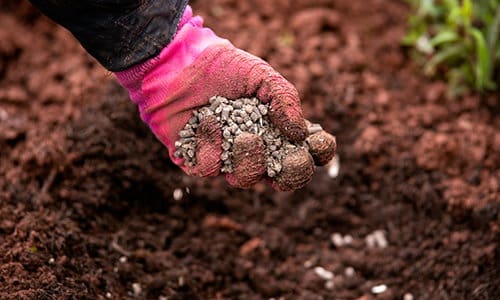
Cover Crops
Consider seeding a cover crop that breaks down and adds vital nutrients and organic matter to the soil. The crops also suppress weeds and help to prevent erosion. Field beans work well.
Bury the seeds a few inches into the soil and they will grow until spring. Cut them down before they grow pods and put the top growth into the compost heap. Other cover crops that are recommended include winter wheat, annual ryegrass, and winter rye. Clovers, alfalfa, and peas are especially valuable cover crops because they fix nitrogen from the atmosphere into forms available to crop plants.
You can also try a mixture of different cover crops. Seed these cover crops in the fall time about 6 weeks before the first anticipated fall frost date. Use a garden spreader to seed and then lightly cover with soil and water. Let the crop grow until spring, then till it under. Wait a few weeks after tilling, and then plant.
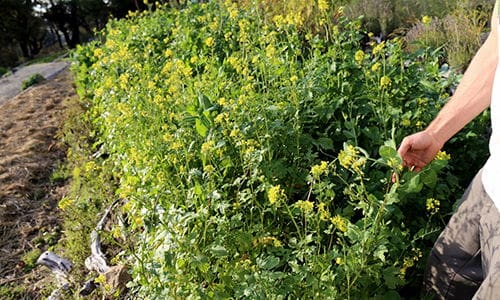
Earthworms
Good soil containing food and habitat will attract worms or consider burying compost worms. As long as the worms have food, they will remain in your garden, eat the food you deposit in it, and enrich the surrounding soil.
Consider adding worms to the manure at the same time. The worms will help break down the manure more quickly and deposit their castings in the garden area.
Also, consider burying cardboard as worms like to find shelter under it and it helps provide more air for them. Stale bread can be buried to feed the worms and also serve as an organic fertilizer. Brewed coffee grounds absorb moisture and provide food for worms, as well.
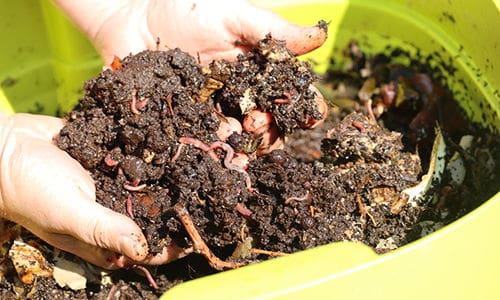
Eggs and Eggshells
Eggs are known for their calcium, phosphorous, magnesium, nitrogen, zinc, copper, and a lot of micronutrients. These are beneficial to plant growth.
As a chicken owner, I keep the soiled, cracked, and old eggs and bury them in my garden.
I put the egg in a hole that I dug, crack the shell, and cover this with soil. You can bury the eggs ahead of planting or bury them as you plant. If you don’t have access to eggs, you can save your eggshells after eating the eggs and plant those instead. Don’t forget to mark where the eggs/eggshells are planted so you can come back and plant on top of them.
Related: 11 Ingenious Uses For Eggshells In Your Garden
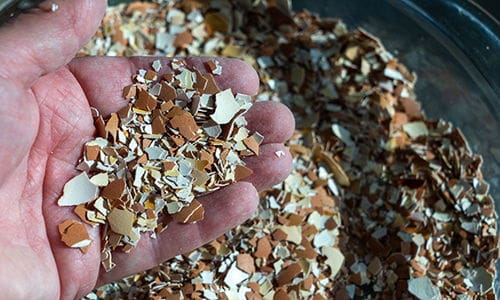
Kitchen Scraps
All kinds of kitchen scraps can be buried in your garden. Cover the scraps with soil and try to bury them before you plant.
Garden Waste
Green waste (tree pruning, non-seedy weeds, old plants, lawn clippings) can be buried directly into a garden bag. They cost nothing and go a long way to nourishing your garden.
Don’t overdo it as soil microorganisms may consume a lot of nitrogen.
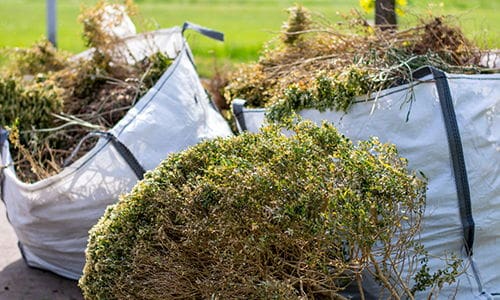
Tea and Coffee Scraps
Consider digging the scraps into the soil, sprinkling them around the garden, or burying them deep into the soil.
The alkaline in coffee grounds is well-suited for plants that like sweeter soil. Think onions and blueberries. Spread the tea leaves in a thin layer to avoid changing the pH of the soil as it is more difficult for the plants to absorb the required nutrients. If using tea from teabags, be aware of micro-plastics in the packaging and don’t bury the tea bags.
I strongly encourage you to try some of these recommended things for your garden. Healthy plants can be yours quicker than you might think.
You might also want to try other ingredients, tips, and techniques. The goal is to get the right amount of nutrients in the soil for the greatest plant growth.
Something else to consider is getting a basic soil test every 3 to 5 years to measure phosphorus, potassium, soil pH, and organic matter. Soil testing may be offered for a small fee or for free by various local organizations. Typically, you just send a soil sample in to be assessed. Then you will be able to adjust the soil pH which is important for nutrient availability to your plants. If necessary, you can add lime or ashes from burned firewood to raise the pH or add sulfur to lower it within the proper levels (between the 6.0 and 7.0 range on the pH scale).
You may also like:
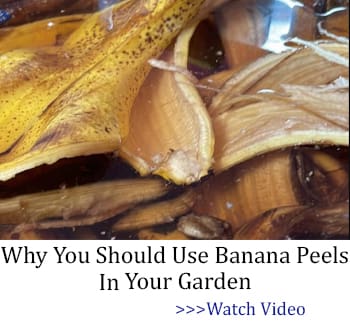 What Happens When You Bury A Fish Head Under A Tomato Plant
What Happens When You Bury A Fish Head Under A Tomato Plant
If You See This Plant in Your Backyard, Burn It Immediately! (Video)
